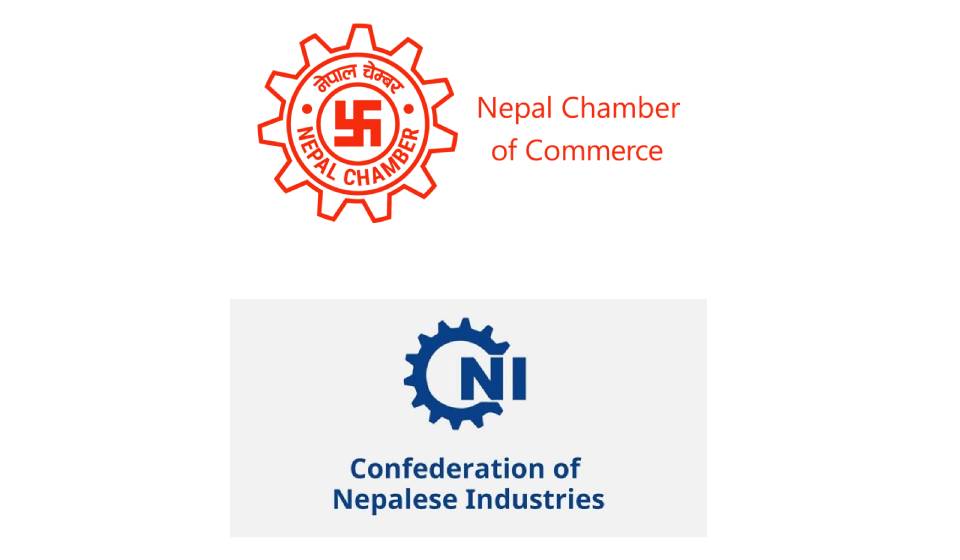KATHMANDU, April 11: The High-Level Economic Reforms Advisory Commission has urged the government to dissolve the Department of Revenue Investigation (DRI).
The commission submitted its report to Deputy Prime Minister and Finance Minister Bishnu Prasad Paudel today, recommending the department's dissolution as part of broader efforts to reform the revenue system. In its report, the commission emphasized the need to strengthen the Revenue Tribunal and enhance the capabilities of existing tax investigation agencies, stating: "The government must dissolve the Department of Revenue Investigation and invest in boosting the capacity of other relevant institutions."
The commission recommended reducing the current tax audit period from four years to three, as outlined in Section 101 of the Income Tax Act.
To promote large-scale commercial and multi-purpose building construction, the commission proposed offering exemptions in integrated property tax. It also advised the government to cut fines imposed under Section 120 of the Income Tax Act by 50 percent for non-deliberate errors, excluding cases of intentional tax evasion.
The commission further suggested removing Section 57 of the Income Tax Act from cases involving regular or family-related share transfers and cancellations due to death. It called for amending the same section to align with international best practices.
Controversial businessman Adukia suspected to have flown abroad...

Arguing that taxing non-existent income defies sound principles, the commission urged the government to completely scrap Section 95 (a) of the Income Tax Act. It also recommended exempting electronic payments up to Rs 5,000 from value-added tax (VAT).
The commission advised lawmakers to avoid applying tax laws retroactively, link local tax payments to Permanent Account Numbers (PAN), impose only 10 percent income tax on export earnings, and resolve tax disputes in a timely manner.
To streamline implementation, the commission proposed automatically enforcing tax incentives specified in sectoral laws through the Finance Act. It recommended inserting a general anti-avoidance rule in the VAT Act and limiting excise duties to products that harm public health and the environment.
Acknowledging already high tax rates, the commission urged the government to adopt strategies that boost non-tax revenue. It also encouraged the government to convert state-owned enterprises into public limited companies and sell shares to the private sector. The commission argued that such measures would strengthen capital markets and improve institutional management by involving private sector participation.
The High-Level Economic Reforms Advisory Commission has also urged the government to dissolve five non-operational public enterprises, including the Janakpur Cigarette Factory.
The commission submitted its report to the government today and recommended closing five public institutions that have failed to function effectively. It named Janakpur Cigarette Factory, Butwal Yarn Factory, Nepal Engineering Consultancy Services Center, National Construction Company Nepal, and Nepal Orient Magnesite Pvt. Ltd. for dissolution.
The commission advised the government to dissolve these entities if they cannot resume operations. It also urged the government to bring their immovable assets under state ownership and repurpose them for productive use.
The commission called for a Due Diligence Audit (DDA) of Hetauda Cement Industry and Udayapur Cement Industry. It recommended merging the two, retaining a minority government stake, and selling the remaining shares to the private sector.
To reform Nepal Airlines Corporation, the commission proposed bringing in a strategic foreign partner and managing the corporation on a commercial basis. It suggested that temporarily handing over management to a foreign team would help professionalize the airline.
The commission also recommended transforming the Dairy Development Corporation into provincial public institutions, allowing each of the seven provinces to operate its own entity.
To ensure professional and politically independent operation of public enterprises, the commission called on the government to amend the existing Company Act. It proposed allowing wholly government-owned public limited companies to function as holding companies and emphasized the need for timely audits of all public institutions.
The commission advised the government to appoint competent individuals using performance-based indicators and to grant public enterprises greater autonomy to operate professionally.
It also urged the government to convert public enterprises into public limited companies, sell shares to the general public, and mobilize capital by issuing bonds. In addition, the commission recommended ending the practice of issuing loans to cover employee salaries or other operational expenses in public institutions.





































